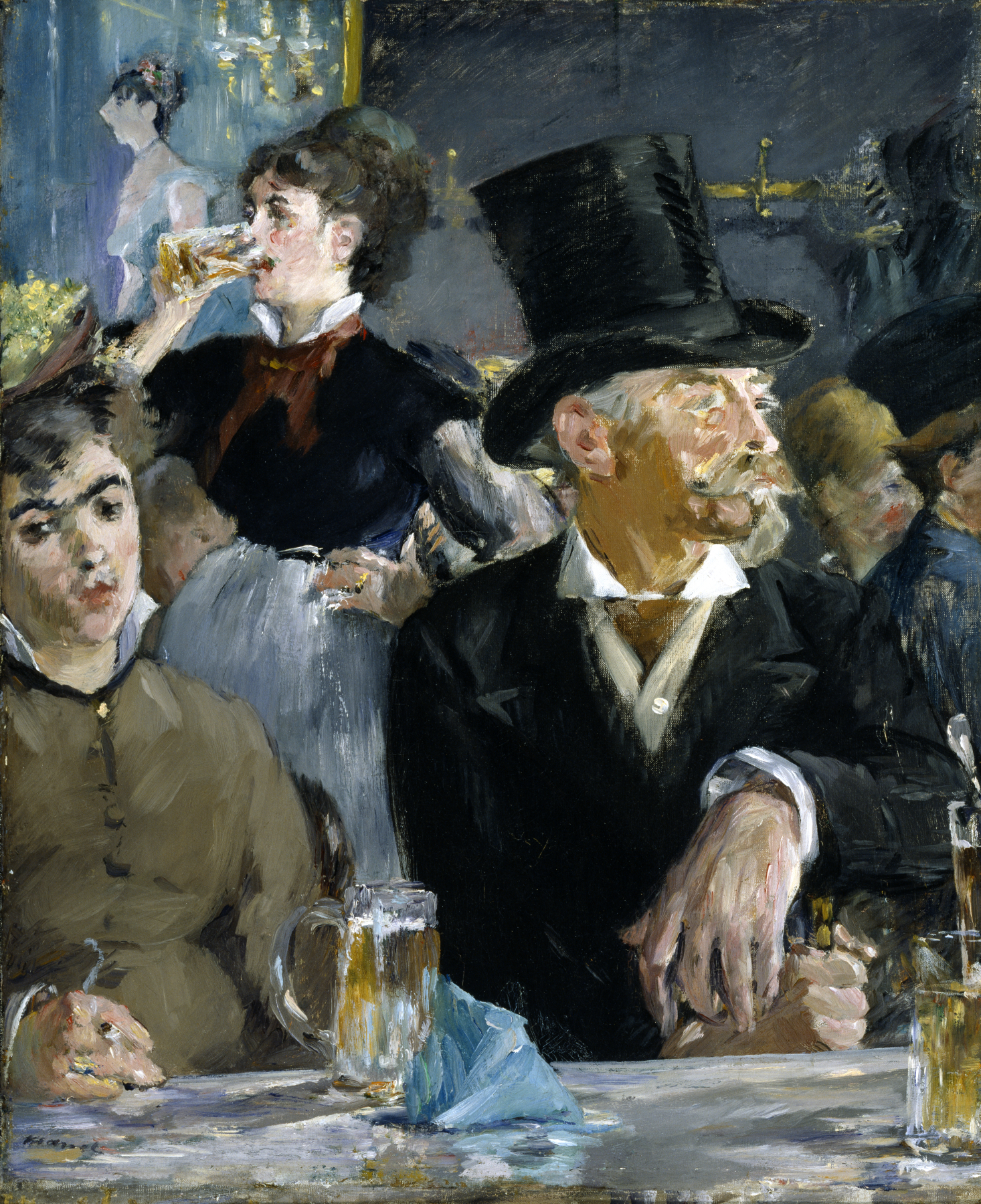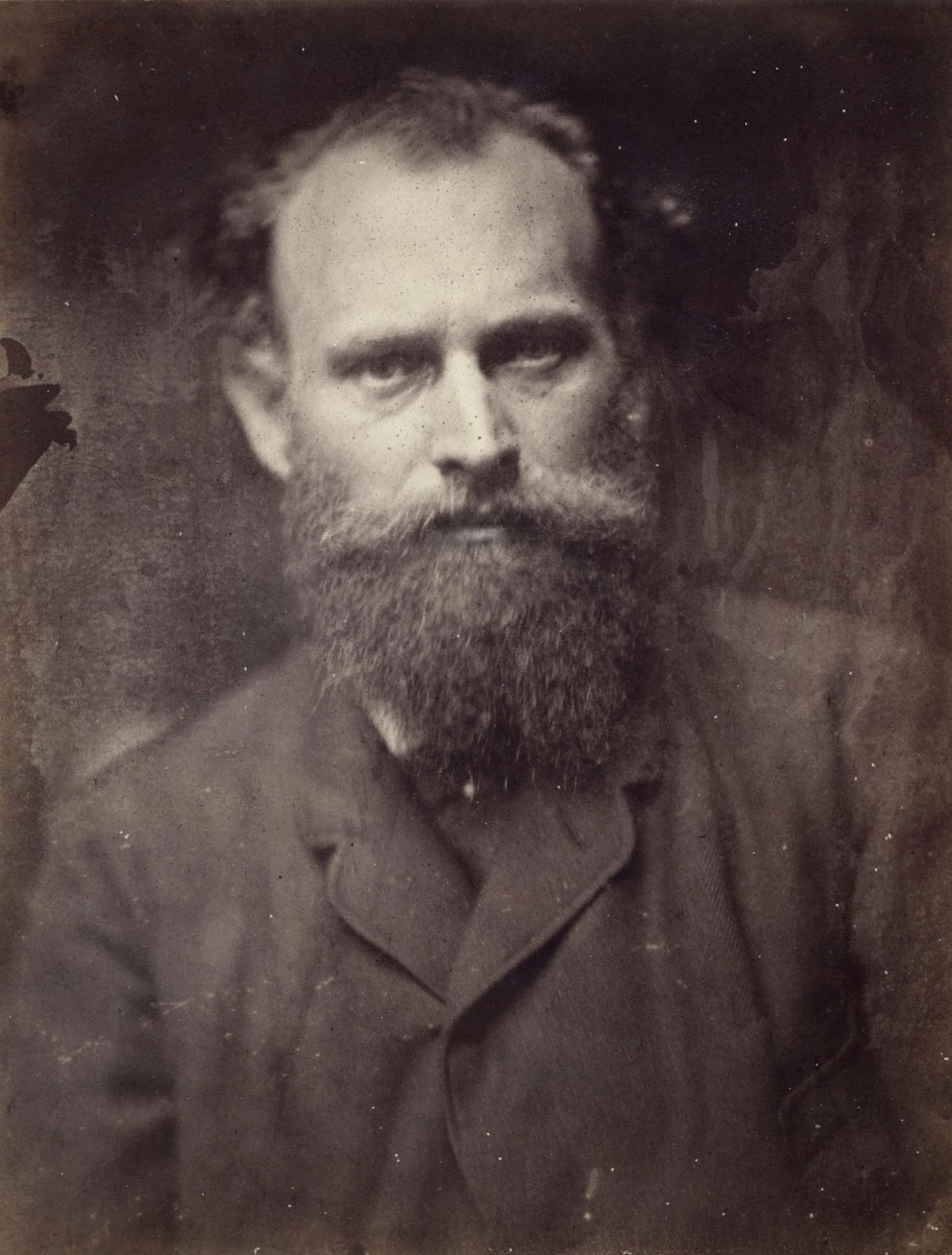Manet was the quintessential "Painter of Modern Life," a phrase coined by art critic and poet Charles Baudelaire. In 1878-79, he painted a number of scenes set in the Cabaret de Reichshoffen on the Boulevard Rochechouart, where women on the fringes of society freely intermingled with well-heeled gentlemen. Here, Manet captures the kaleidoscopic pleasures of Parisian nightlife. The figures are crowded into the compact space of the canvas, each one seemingly oblivious of the others. Manet claimed he was painting “des oeuvres sinceres” or “sincere works”. The women depicted in these scenes were courting certain risks with regards to perception and morality.
When exhibited at La Vie Moderne gallery in 1880, this work was praised by some for its unflinching realism and criticized by others for its apparent crudeness. Manet presents here a café-concert in which three central figures form a triangle but are all engaged in opposite directions. The scene of a café-concert should be casual but Manet hints at separation. The waitress enjoys a beer, the woman at the bar smokes a cigarette and appears subdued, the man appears at his ease and watches the performance (the singer known as “La Belle Polonaise” is reflected in the mirror in the background of the painting). It is noted that the man evokes confidence because men unlike women could frequent café’s with security. The painting was posed and completed in a studio but gives the appearance of being freshly observed.


 Édouard Manet
Édouard Manet